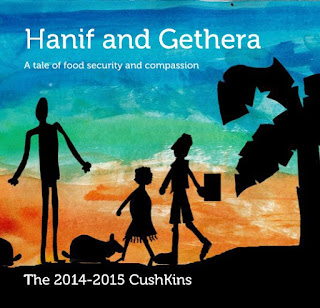In the span of three days, the United States has seen a racially driven murder of two African-Americans in Kentucky, an assassination attempt of more than a dozen Democratic political figures, and the what may be the deadliest attack on Jews in American history here in my home state of Pennsylvania.
Like many Americans I am faced with the feelings of sadness, anger, helplessness, and determination that often come after acts of mass violence that have become all too commonplace in our country.
Yet, in watching news coverage of these events, I am struck by something else as well.
We live in a society where hate has become normalized.
 |
| Photo Credit: Flickr/USMarshals |
I've watched interviews with people who knew the Pittsburgh shooter and the person who allegedly attempted to kill political figures by sending them bombs in the mail.
The former boss of the bomber said that she was shocked that he would do something like this because he was a model employee and seemed so normal. This was just before she described how he routinely expressed white supremacist views, told her that she was going to burn in Hell for being a lesbian, and that he was very upfront about his hatred for non-white people.
A neighbor of the Pittsburgh shooter said they couldn't believe that he did this because he was such a "normal guy." Yet, his radicalized anti-semitic rants online and hatred of Jews were known before he walked into a synagogue and opened fire.
In America today, when our neighbors and co-workers spew hate, it is viewed as normal. These people didn't think it was abnormal that those they knew were filled with prejudice and hate.
Our public discourse has become so heated and divisive that prejudice and intolerance of groups of people are expected.
Anyone who teaches or spends time around children knows that environment matters. We tell our children to choose their friends wisely and to stay away from those who will encourage them to make poor choices. Those we surround ourselves with influence how we think and how we act.
We have allowed an environment where being filled with hate does not make you an outlier in our society. This impacts all of us who are in this environment.
When people practice stereotyping, discrimination, intolerance, or hatred of ANY group, they spread the hate that is consuming our country.
When people post on social media or engage in rhetoric that stereotypes or generalizes Jews, Mexicans, Muslims, immigrants, refugees, "Liberals", Republicans, "the left-wing media", or any other group they contribute to the climate that has made current events possible.
Stereotyping is a form of prejudice. Prejudice leads to intolerance and hate.
Each of us must examine our behavior and the way we refer to other groups. Regardless of what "side" each of us is on due to our political beliefs, we must commit to refraining from the intellectual laziness that leads to attacking groups of people rather than calling out individuals for their transgressions. It's much easier to share a hateful meme than it is to craft a nuanced post about a policy or figure with which/whom you disagree.
Too often I see individual examples used as the basis for generalizing about entire groups in order to score political points. Every time we do this we move further down the road of normalizing stereotypes and prejudice. We move further down the path of normalizing hate in our society.
We also must look to our public officials and demand of them civility. Culture is determined by leadership. The current culture of mainstream hatred has been created by the public discourse led by our elected officials.
Regardless of political party, anyone who engages in stereotyping, intolerance, or outright hatred of large groups of people for political gain must be voted out of office. Whether these stereotypes are based on religion, race, political affiliation, sexual orientation, ethnicity, country of origin, or any other attribute should not matter. The very act of othering for political gain should be a disqualifying offense in our political system.
So many of the darkest moments in our history as a human race began with othering, stereotyping, and prejudice that grew into heinous action. The Holocaust, the Rwandan genocide, the Holodomor, the Armenian genocide of the early 20th Century, and on, and on, and on.
Those who live in democratic societies are blessed or cursed with the governments they deserve.
Each of us has a choice to make.
Do we want a culture in which hate is normal and mainstream? Or do we want a culture of civility and inclusion?
I pray that we choose the latter.
Michael Soskil is a dynamic speaker, professional learning facilitator, author, & one of the most highly recognized teachers in the world. The book he co-authored, Teaching in the Fourth Industrial Revolution, has been called "an authoritative guide to teaching practice over the next three decades" and has been endorsed by world leaders in government, education, & business. To learn more about Michael's work or to book him as a speaker for your next teacher workshop or event, please visit his website at MichaelSoskil.com. 









